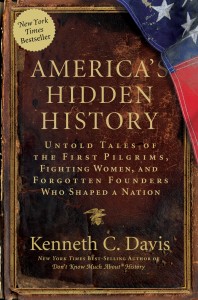 Are the reports of the death of the GOP, to paraphrase Mark Twain, “Greatly exaggerated?” Or are we seeing the inexorable demise of a doomed beast –like seeing the last wooly mammoth go down in tar pits of La Brea?
Are the reports of the death of the GOP, to paraphrase Mark Twain, “Greatly exaggerated?” Or are we seeing the inexorable demise of a doomed beast –like seeing the last wooly mammoth go down in tar pits of La Brea?
The defeats suffered in the 2006 mid-term and 2008 Presidential elections, combined with the recent defection of Senator Arlen Specter to the Democratic Party, certainly left a whiff of lingering death in the air. Was Specter’s decision a mandatory ten-count that will allow the Republicans to get off the mat and fight on? Or was it the final knockout roundhouse?
Time will tell. But history, of course, is instructive.
In the New Deal days of FDR, Republicans certainly had a near-death experience. There was another deathwatch for the Republicans following Watergate, Nixon’s demise and the Ford Presidency. Then, during the “Reagan Revolution,” the obituaries for the Democrats were being prepared, as the party of FDR, JFK and LBJ seemed DOA.
In modern times, then, both parties have survived these “going into the light” experiences –usually when the other party does something incredibly stupid, arrogant or both. But there is no constitutional guarantee of a two-party system. After all, the Framers of the Constitution didn’t even like parties, or “factions” as they called them in Washington’s day.
But history also tells another story. That political parties do occasionally die. And I’m not talking about the once-significant, now-obscure third parties like the Anti-Masons, Know-Nothings, Ross Perot’s Reform Party, or Ralph Nader’s Greens.
Get out your history books, children. Remember the Federalists? The Whigs?
The Federalists were one of America’s first parties and early in the republic’s history, its most significant. George Washington never declared himself a member of the party, but his sympathies certainly seemed to lie there. Both John Adams, Washington’s successor, and his first Treasury Secretary, Alexander Hamilton, were staunch Federalists. But the Federalists eventually withered in the face of Andrew Jackson and the growing power of the Democratic Party. The heirs of those Federalists, along with some folks who just plain despised Jackson, later coalesced into the Whigs, America’s other most important extinct party. The Whigs were the first political home of Abraham Lincoln.
Looking back at the rise and fall of the Federalists and Whigs, it is plain what kills parties. Personalities and issues –or the lack thereof—make and break political parties. After their demise, the former Whigs rallied around opposition to slavery’s extension and some other key organizing principles, to create the Republican Party in the 1850s. New parties are born out of some old party’s bones.
So political parties do die — sometimes with a bang but more often with a whimper. But history also shows that even in death, they can leave a powerful wake. In the case of John Adams, he had a single Presidential term and his Federalist Party did not survive very long. But it was Adams’s appointments to the Supreme Court that truly mattered, especially his elevation of Chief Justice John Marshall in January 1801. The towering figure in 19th century legal history, Marshall shaped the court and the country for more than 30 years, until his death in 1835. His decisions, such as Marbury v Madison, not only cemented the Supreme Court’s power but shaped the future of the country.
That means that even in the unlikely case that the Republican Party slips these mortal coils, the Republican legacy may live on for years to come. Like the Federalist legacy of John Adams, the Republican influence may remain on the Supreme Court for decades.
Leaving aside 89-year-old Justice Stevens –appointed by Republican Gerald Ford, but generally voting with the Court’s liberal bloc– there remains a solid gang of four of Republican-appointed Justices: Roberts (age 54); Scalia (age 73); Thomas (60); and Alito (59). Though considered the key “swing vote,” the other Republican appointee, Justice Kennedy (72), often votes with these four, creating a solid conservative Republican majority.
So bury the GOP, if you dare. But just as Chief Justice Marshall kept Federalism aliveand kicking in the 19th century, well after the Federalist Party was gone, this bloc may have an impact on the nation long after the last shovel of dirt is thrown on the GOP’s remains.